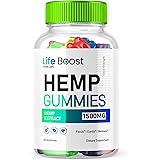Have you ever found yourself tossing and turning, desperately wishing for a good night’s rest? Perhaps you’ve heard whispers about natural alternatives like cannabis helping with sleep, but the details felt as foggy as a morning after a restless night. Understanding which compounds, specifically THC or CBD, might assist your journey to slumber can certainly feel complicated. The short video above offers an excellent primer, highlighting that using marijuana for sleep is nuanced and depends on critical factors like the specific compounds you choose and their respective dosages.
Demystifying THC and CBD for Sleep
The cannabis plant is a complex botanical marvel, housing a spectrum of compounds known as cannabinoids. Among these, delta-9-tetrahydrocannabinol (THC) and cannabidiol (CBD) are the two most prominent, each interacting with your body in distinctive ways. These interactions primarily occur through the endocannabinoid system, a vast network of receptors influencing various physiological processes, including sleep, mood, and appetite. Knowing the individual characteristics of THC and CBD is essential when considering them as potential allies for a better night’s rest.
Understanding THC’s Dual Nature for Rest
THC is the cannabinoid famously associated with the psychoactive effects of cannabis, often producing a “high.” As the video explains, THC typically acts as a sedative, gently guiding many individuals toward a state of relaxation conducive to sleep. This sedative quality can help shorten the time it takes to fall asleep for some users. It might feel like your mind quiets down, and your body eases into a more comfortable state, making the transition to sleep smoother.
However, it is vital to acknowledge THC’s fascinating dual nature; for some people, it can actually have a stimulating effect. Imagine trying to calm a bustling crowd with a soft whisper; sometimes, this gentle approach might inadvertently energize them instead. This stimulatory response often occurs with higher doses or in individuals who are particularly sensitive to THC, potentially leading to increased anxiety or restlessness. In these instances, taking cannabis before bed could paradoxically make it even more challenging to fall asleep, extending your wakefulness rather than shortening it. Consequently, understanding your personal tolerance and sensitivity becomes crucial when exploring THC for sleep.
CBD’s Diverse Influence on Your Sleep Cycle
CBD, in stark contrast to THC, is non-intoxicating, meaning it does not produce a “high.” Its interaction with the endocannabinoid system is more indirect, influencing other receptors and pathways within the body. The video rightly points out that CBD’s effects on sleep are also dose-dependent, creating a fascinating push-and-pull dynamic.
At lower doses, CBD generally promotes alertness, almost like a gentle nudge to wakefulness. Think of it as a mild invigorating sensation, making lower CBD doses more suitable for daytime use to enhance focus or manage anxiety without drowsiness. However, when CBD is consumed at higher doses, its effects can shift dramatically. In these greater quantities, CBD often promotes sleepiness, helping the body and mind relax more deeply. It might feel like a warm blanket wrapping around you, easing tension and encouraging a tranquil state ideal for slumber. This biphasic response means that finding the correct CBD dosage is paramount to achieving the desired effect for sleep.
Navigating Dosage and Individual Responses
The core message regarding both THC and CBD for sleep revolves around the importance of dosage and individual physiological responses. Just as a small cup of coffee might gently wake one person, while a large one could send another into jitters, cannabis compounds affect everyone differently. Your unique body chemistry, metabolism, genetic makeup, and even your current state of mind can all influence how you react to these compounds.
Finding the right dosage is less like following a rigid recipe and more like a careful scientific experiment focused on your own body. It usually involves starting with a very low dose and gradually increasing it over time, carefully observing your body’s reactions. This methodical approach helps you discover the minimal effective dose that provides the desired benefits for your sleep without unwanted side effects. Moreover, consistently using the same product allows for more accurate self-assessment, as the cannabinoid and terpene profiles can vary significantly between different cannabis products.
The Role of the Endocannabinoid System (ECS)
To truly grasp how THC and CBD impact your rest, it helps to understand their interaction with your body’s endocannabinoid system, or ECS. This complex cell-signaling system plays a pivotal role in regulating a vast array of functions, including sleep, mood, appetite, memory, and pain sensation. The ECS consists of endocannabinoids (compounds your body naturally produces), receptors (CB1 and CB2 receptors found throughout your body), and enzymes that break them down.
THC primarily binds directly to CB1 receptors in the brain, which accounts for its psychoactive and some of its sleep-inducing effects. CBD, however, does not bind directly to these receptors but rather modulates them and influences other pathways, enhancing the body’s natural endocannabinoids. This indirect action is why CBD typically offers therapeutic benefits without the “high.” Understanding the ECS provides valuable context for why THC or CBD for sleep can be so effective for some, yet inconsistent for others.
Beyond THC and CBD: A Holistic View of Sleep
While exploring the potential of THC and CBD for sleep can be a valuable endeavor, it is crucial to remember that good sleep hygiene forms the bedrock of restful nights. Cannabinoids can be a helpful tool, but they are not a magical cure-all for chronic sleep issues. Incorporating healthy lifestyle practices will always complement any natural remedies you choose to explore.
Consider establishing a consistent sleep schedule, even on weekends, to regulate your body’s natural circadian rhythm. Create a relaxing bedtime routine, such as reading a book, taking a warm bath, or practicing gentle stretching, to signal to your body that it is time to wind down. Optimize your sleep environment by ensuring your bedroom is dark, quiet, and cool. Furthermore, limiting screen time before bed, avoiding heavy meals and excessive caffeine or alcohol in the evenings, and incorporating regular physical activity into your day can significantly improve your sleep quality. Consulting a healthcare professional is always recommended before introducing new substances into your routine, especially if you have underlying health conditions or are taking other medications. This comprehensive approach maximizes your chances of achieving truly restorative sleep.











